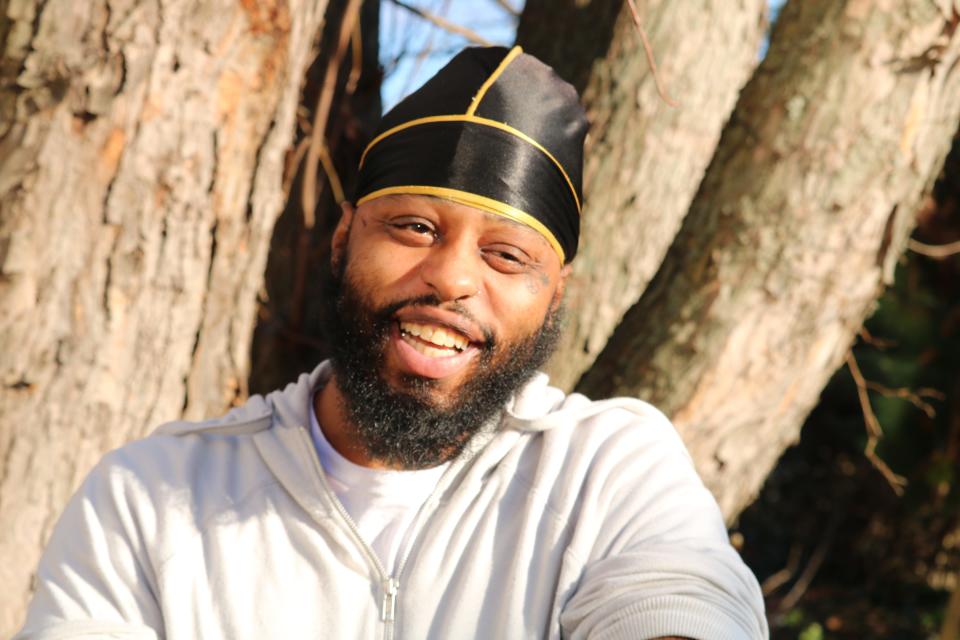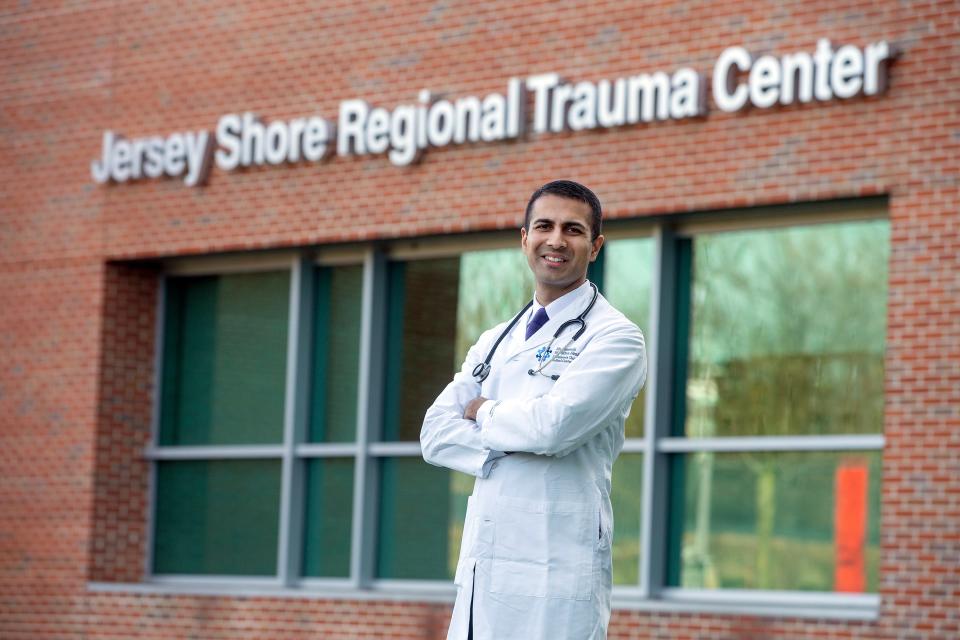Jersey Shore hospital tries novel way to ensure violence victims stop getting hurt
NEPTUNE - Aaron Carpenter was treated for gunshot wounds to his leg at Jersey Shore University Medical Center one day last fall, but before he was released and sent home, a counselor walked up to his bed and told him there was help available to make sure he wouldn't return with another injury from violence.
Carpenter was tired of living in a constant state of survival. He long had goals of becoming a motivational speaker. When the hospital's counselor offered him a lifeline, he took it.
"They helped me heal, not physically but emotionally," said Carpenter, 38, of Long Branch.
Carpenter is one of 400 Monmouth County residents who have participated in Project HEAL, a program launched in 2020 by Jersey Shore University Medical Center in a bid to break a pattern of violence that can repeatedly land victims of violent injuries in trauma centers.

Demanding justice, healing: Asbury Park community seeks an end to gun violence
To do so, the hospital no longer simply treats and releases victims of violent offenses. It follows up with them offering connections to job training, housing, transportation and, perhaps most pressing, mental health services.
The program at the Neptune hospital is one of a growing number of hospital-based violence intervention programs in New Jersey in a sign that the state is beginning to treat gun violence not only as a crime and safety issue, but also a public health problem.
Public health advocates say it makes sense since hospitals are uniquely positioned to reach victims of violent crimes.
"They represent an opportunity where you have someone who has been a victim of gun violence, and maybe in the past has been a perpetrator of gun violence, and you have them in that moment, separate from that context," said Michael Anestis, executive director of the New Jersey Gun Violence Research Center at Rutgers University. "You have an opportunity to connect them with resources, outside of the chaos of the moment, and before they re-integrate into that chaos."
Want better school mental health? Ocean County students find it hugging adorable dogs
Rising gun violence in New Jersey
It is a chaos Carpenter was thrown into last September, when he said he was hit three times in a drive-by shooting while sitting outside his home.
While New Jersey has among the lowest rates of gun violence nationwide, both fatal and non-fatal gun violence incidents climbed in 2020 and 2021, according to federal and state statistics.
Jersey Shore University Medical Center in Neptune has seen the impact of violence up close. Between January 2016 and August 2019, the hospital’s clinical teams treated 408 violent injuries: 107 by fist, 176 by knife, 84 by gun, and 41 by other means, its internal data showed.
Many of those cases were in its backyard of Asbury Park, Neptune and Long Branch, whose low-income neighborhoods have seen a disproportionate number of incidents that often result in visits to the hospital's regional trauma center. The three municipalities reported 12 murders and 744 aggravated assaults in the past three years, the hospital said, citing state statistics.
Violence at the Jersey Shore: Battle between factions of the Bloods street gang in Long Branch revealed in affidavit
Researchers have found violence can lead to more violence, landing victims in hospital trauma units more than once. To try to break the cycle, Jersey Shore was one of nine New Jersey hospitals that received a total of $20 million from Gov. Phil Murphy's administration in 2020 to start violence intervention programs.

The Neptune hospital created Project HEAL, short for Help, Empower and Lead, with a team of 10, led by Dr. Aakash Shah, chief of addiction medicine in the department of psychiatry and behavioral health at the hospital. He is joined by a nurse, case managers and social workers, all working together to address obstacles that previously were left untended.
For example, they can find temporary shelter for a client who didn't feel safe returning home. They can provide transportation to give clients rides to appointments. They can connect clients with job training, schools or food banks. And they can provide mental health counseling.
The program has treated more than 400 patients. And Hackensack Meridian Health, the Edison-based parent company of Jersey Shore University Medical Center, announced last week it received $3 million in state and federal grants to continue the program.
From crack house to courthouse: Monmouth prosecutor's remarkable journey to new job
"We recognize that you can't improve health care without addressing behavioral health," said Robert C. Garrett, chief executive officer of Hackensack Meridian.
"And when we look deep down, we saw violence as a major public health crisis," he said. "And we understood that health systems like Hackensack Meridian really need to be part of the solution. So it's really about saving lives and expanding access to care."
Violence is 'a public health issue'
The program holds promise. A study of San Francisco General Hospital's violence intervention program from 2005 to 2015 found the reinjury rate decreased from 8.4% to 4.9%, University of California researchers found.

When your child is the bully: A NJ psychologist says watch for these warning signs
Jersey Shore University Medical Center has yet to see the results, but Project HEAL providers said the response from patients exceeded their expectations, particularly the demand for mental health care.
"It's a public health issue, and I think it's important that we look at violence that way," said Lisa McDermott, clinical program manager for Project HEAL. "Because then I think there are more tangible ways that we can intervene. And then decrease and hopefully end the cycle of violence. It impacts too many people for us not to look at it that way."
In the wake of the shooting, Carpenter said his injuries healed nicely, but he was stressed out and feeling low. So he started going to regular sessions to talk to a counselor, who helped him devise a plan to pursue his goal of becoming a motivational speaker.
"I'm trying to better myself," Carpenter said. "I don't want to be in the streets anymore. I want to do better things with my life."
Michael L. Diamond is a business reporter who has been writing about the New Jersey economy and health care industry for more than 20 years. He can be reached at mdiamond@gannettnj.com.
This article originally appeared on Asbury Park Press: Jersey Shore University Medical Center aims to stop cycle of violence

